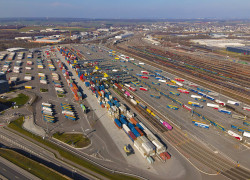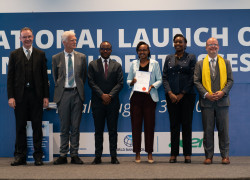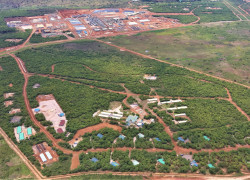PwC Luxembourg - Paying Taxes 2014: tax rate stays stable in Luxembourg
Economies around the world are adopting a range of policies as they strive to strike a balance between raising tax revenues and encouraging growth, according to a new report from the World Bank Group and PwC.
As a conclusion to Luxembourg’s ranking in the Paying Taxes study, the rate of 20.7% shows that, contrary to what is often said, the country is not a tax haven but it still remains competitive compared to other European countries
Wim Piot, Partner and Tax Leader in PwC Luxembourg
This year, 14 economies significantly increased their total tax obligations or the amount of tax a case study company has to pay, while 14 others lowered theirs. In most regions around the world, the rate of decline in the total amount the firm has to pay in taxes continues to slow. The study also reveals that since the study was initiated nine years ago, corporate income taxes have consistently fallen, while labour taxes borne by companies have been more stable and now represent the largest component of the total tax obligations.
The Paying Taxes 2014 report found that 32 economies continued to take steps during the period from June 2012 through June 2013 to make it easier to pay taxes. The study of tax regimes in 189 economies, released today, found that for the third consecutive year the most common tax reform was the introduction or improvement of online filing and payment systems for tax compliance. The compliance burden (the time to comply with tax obligations and the number of payments) has continued to fall in 2012, but the rate of decline has slowed.
"Revenue authorities around the world are taking steps to streamline and modernise payment systems. Taxpayers in 76 economies can now file tax returns electronically from virtually anywhere on the planet. The use of the latest technologies to enhance the quality of public services boosts transparency and, for many tax authorities, it is also allowing a broadening of the tax base, a development with beneficial macroeconomic implications," said Augusto Lopez Claros, Director, Global Indicators and Analysis, World Bank Group.
The 2014 report finds that on average a medium-sized company has a total tax obligation of 43.1% of profits, making 26.7 payments and needing 268 hours to comply with its tax requirements.
“Reforming the tax system is essential and this study shows that it is not just corporate income tax that is important. It is also a case of making decisions around who needs to be taxed, how they will be taxed, and by how much,” said Andrew Packman, leader for Tax Transparency and Total Tax Contribution at PwC. “Trends in the international tax environment such as the globalisation of business, increasing competition among countries for tax revenues, and the increasing proportion of company assets that are made up of intangibles such as brand names, software and know-how, require tax systems around the world to be updated to meet modern needs.”
Luxembourg ranks second in the European Union with a Total Tax Rate (TTR) of 20.7% after Croatia (19.8%) and before Cyprus (22.5%) and Ireland (25.7%). The Luxembourg TTR remains quite stable compared to last year (21%), which could easily be explained by the fact that the computation is based on the same case study company entitled to the same tax credit due to the significant investments it has made.
“At a time when developed economies are trying to find a way out of a succession of crises, Luxembourg is showing some positive signs of recovery. This is mainly due to the fact that Luxembourg has a very stable regulatory and tax environment which keeps attracting new investors. That being said, we need to remain cautious and Luxembourg has to face new challenges such as new international regulations including FATCA, AIFMD, CRD IV and BEPS. All this is going in the same direction, i.e. increasing tax transparency. As the biggest tax advisor firm in Luxembourg, our role is to communicate on these new international regulations with all stakeholders. On the one hand, we encourage our clients to show that they pay their "fair share of taxes" and, on the other hand, we warn decision-makers about the potential negative impact of an unbalanced change in the regulatory and tax environment,” explains Wim Piot, Partner and Tax Leader in PwC Luxembourg.
“As a conclusion to Luxembourg’s ranking in the Paying Taxes study, the rate of 20.7% shows that, contrary to what is often said, the country is not a tax haven but it still remains competitive compared to other European countries.”
Paying Taxes 2014 measures all mandatory taxes and contributions that a medium-sized firm must pay in a given year. Taxes and contributions measured include the profit or corporate income tax, social contributions and labour taxes paid by the employer, property taxes, property transfer taxes, dividend tax, capital gains tax, financial transactions tax, waste collection taxes, vehicle and road taxes, and other small taxes or fees.
For more information about the Paying Taxes study, visit: www.pwc.lu/en/tax-consulting/pwc-paying-taxes-2014.jhtml
The Paying Taxes annual report builds on the World Bank Group’s Doing Business reports’ chapter on Paying Taxes. For more information on the Doing Business report series, visit: www.doingbusiness.org
Communiqués liés
RSA launches technology and management liability insurance s...
RSA Luxembourg, part of Intact Insurance Specialty Solutions, today announces th...
Lancement d'une nouvelle connexion intermodale entre Bettemb...
CFL multimodal a le plaisir d'annoncer le lancement de sa nouvelle connexion i...
Experts from LUNEX award first micro-credentials in Rwanda o...
The Rwanda Ministry of Education (MINEDUC) formally inaugurated Syllabi, a publi...
ERG Notes that ENRC Secures Landmark Victory as Court of App...
Eurasian Resources Group (ERG), a leading diversified natural resources group he...
LetzToken et La Vie est Belle annoncent leur partenariat ouv...
«?LetzToken?», plateforme de tokenisation pionnière basée à Luxembourg, et ...
ERG announces a Pre-Export Finance Facility Agreement based ...
Eurasian Resources Group (“ERG”, “The Group”), a leading diversified nat...
Il n'y a aucun résultat pour votre recherche







